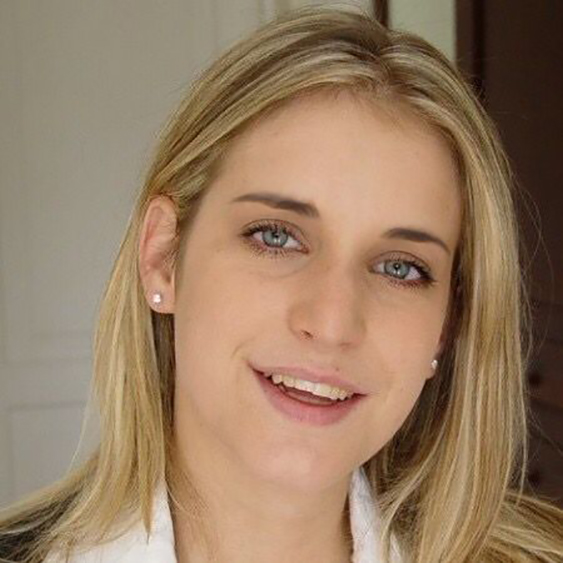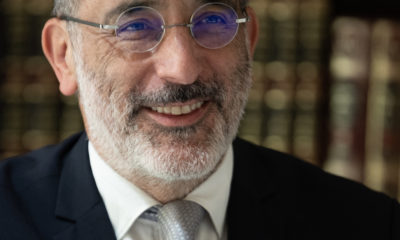
Parshot/Festivals

Hear the sound of the shofar – and get help
Rosh Hashanah shakes us out of our complacency, forcing us to make changes. This has also been the case during the COVID-19 pandemic, say psychologists, who emphasise the importance of having the right emotional toolkit for a rapidly changing world.
“The shofar has sounded,” says educational psychologist Sarah-Jane Lipshitz. “COVID-19 has come and feels everlasting and overwhelming at times. The shofar doesn’t stop blowing, sometimes there are moments of respite, lulls between waves, but who knows what’s to come? If anything, this time has taught us that we need to be resilient and armed with our own personal strengths. It’s also opened a much-needed space for contemplation, self-care, and for realising what really matters in life.”
While some may have used this time to re-evaluate their lives, others have struggled to cope with the upheaval COVID-19 has brought. Not only is it a physical health crisis, it also poses a significant risk to mental health. For some, this has offered a back door to therapy, says Lipshitz.
“Prior to COVID-19, many people weren’t able to talk about themselves and explain that they had a problem. Yet now, many are struggling, and find themselves facing increased anxiety due to the uncontrollable nature of the virus. They’ve therefore opened up more than they would have previously.”
That’s why Lipshitz started an online support group with trauma therapist Jacqui Yates. Titled “This is us”, it hosts webinars providing psychological support for those battling to handle the emotional fallout of the pandemic.
Clinical psychologist Shai Friedland has also observed a greater openness to therapy. “COVID-19 has fast-forwarded things. It’s made people explore therapy a bit earlier than they would have otherwise, helping them to learn new things about themselves,” he says. “It’s opened people’s eyes to mental health, and showed that there doesn’t have to be a stigma around it.” Once they realise the benefits of the resource therapy provides, they’re more willing to make necessary changes, thereby increasing awareness about the practice.
That’s not to say that the therapeutic process is simple. “New beginnings are very anxiety provoking. The unknown always comes with anxiety,” says Friedland. “But we need to embrace the chance to begin again and realise that there’s a lot of good that can come from that.” It all starts with a shift in mindset. “Instead of seeing change as difficult, see it as a new start, a way to learn something.”
If COVID-19 has taught us anything, it’s that we need be fluid and adapt to what life throws at us. While we must accept that there are certain things that we cannot change or control, we must also be willing to put in the work where we can make improvements.
“When things aren’t going well, there’s no point in remaining stagnant, you’ve got to make changes to bring about lasting change in your life,” says Friedland. “I work from a cognitive behavioural therapy perspective. The idea is that to get a different perspective, you need to have different thoughts about a particular scenario. If you change the way you see something, it may make it easier for you to change your behaviour. Conversely, changing your behaviour, as difficult as that is, will then result in a change in thought process and emotional awareness.”
Making such behavioural and cognitive changes should be a gradual process, especially in these times. “Make slow changes,” says Friedland. “Start with the building blocks of mental health, including getting enough sleep, exercising, following a healthy diet, and having a healthy relationship with work and socialising.” During COVID-19, we’ve largely had to adapt how we integrate these practices into our lives. “Slowly start to add some exercise to your day, even if it’s at home,” he suggests. “Even simply calling someone can signal a new beginning.”
What are the signs we need to make a fresh start? “One of the greatest signs that we need to make a significant change in our lives is when we keep finding ourselves in the same unfavourable situation – where the same pattern keeps replaying itself,” says clinical psychologist Amanda Fortes. “A new beginning often means letting go of something that clearly isn’t working or serving us in our lives. Even though it might seem like the obvious and healthy choice, it’s often difficult to implement as our brain prefers the familiar and the outcomes that we know. Sometimes those difficult, uncomfortable situations or outcomes feel more comfortable than starting something new.”
That’s because our patterns of behaviour and thoughts are engrained in our brains through neural pathways. “But through slowly and repeatedly enacting different behaviours, having different types of thoughts, and trying to see things in different ways, the brain does start to make those changes, developing new neural pathways,” says Friedland. “Then we’re able to move forward, and hopefully, new beginnings lead us to a place of better mental health.”
To start this process, we need to turn inward, and ask ourselves some key questions, says Lipschitz. Are we managing? Are we doing the best we can? What can we do better? Once we reach a place of understanding of where we are right now and an acceptance of the feelings that come with that, we can move forward with new goals in mind.
“Therapy is a journey,” says Lipshitz. “I work with clients in terms of understanding and facilitating their life experience, discovering where they’re at, and what they want to achieve. COVID-19 has opened many doors because it basically forces people to reflect on who they are, get out of their rut, and figure out a new space for themselves, somewhere we have the emotional tools we need to cope with whatever comes along.”
Encouraging us to turn inwards, Rosh Hashanah offers that same opportunity to change the things that aren’t serving us, embracing who we’re meant to be, and moving forward with a fresh perspective.










